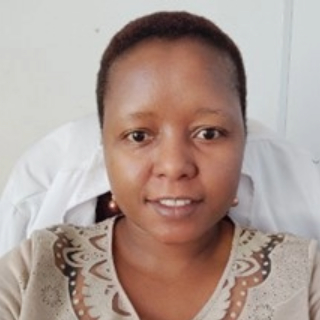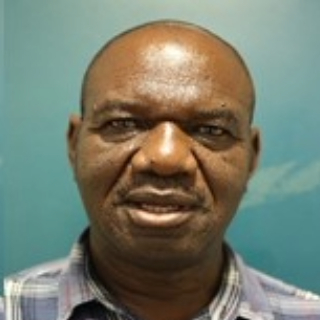THE DEPARTMENT OF FIBRE AND POLYMER MATERIALS

The department of Fibre and Polymer Materials Engineering was established in the year 1999 and was initially named the department of Textile Engineering. We live in a world that is both dependent upon and limited by materials. Materials processing industries in Zimbabwe and worldwide need expertise in the field of material science to Mann and monitor their various production facilities. In Zimbabwe there are a number of companies which deal with plastics, rubber, leather, fibre manufacture etc. However, these companies have expressed the need for experts in those respective fields. Therefore it is the aim of this programme to address these needs by providing graduates trained in the areas identified. Students from the Fibre and Polymer Materials Engineering programme will graduate with relevant expertise that they can offer not only in Zimbabwe but to the global community. With reference to Goal 12 of the SDGs, the programme seeks to provide training to develop skills to substantially reduce waste generation through prevention, reduction, recycling and reuse so as to achieve sustainable management practices and efficient use of resources especially natural ones.
Fibres and polymers can be derived from renewable and non-renewable resources. They have found application in industries including plastic, rubber, medical, healthcare, automotive, robotics, communication, construction, packaging, textile, manufacturing and emerging fields. Fibre and polymer engineers are equipped with a robust and deep understanding of the production, structure and properties of fibres and polymers. The engineers also have fundamental knowledge and understanding of processing, structure, properties, and function of materials manufactured using fibres and polymers. There exist a myriad of materials and products produced from these fibres and polymers and ongoing research is expanding the application potential of these materials. Also of note is that fibres and polymers, especially those based on bio-resources, are playing a crucial role in the drive towards a pollution free world based on circular economies.
Education 5.0 focuses on five pillars which are research, teaching, community service, innovation and industrialization (Ministry of Higher and Tertiary Education, Science and Technology). Since its inception, the department of Fibre and Polymer Materials Engineering has managed to enhance its research output though publishing several articles in the field of fibre and polymer materials and channelling out Mphil students. We have successfully produced undergraduate students and postgraduate students as part of our teaching and learning mandate. As part of our community service, we have done several outreach activities to various rural communities in Matabeleland to hold training workshops on leather and leather products. The training involves animal skin handling and treatment, animal rearing for good quality skins and leather products for value addition. Leather product manufacturers in the rural areas have also been assisted with information on how to form clusters in order to streamline their business operations and maximise profits. Also, all our students go through a practical industrial experience through participating in a full year industrial attachment in the relevant industries. This allows the students to have a hands-on approach of the field of materials engineering and also develop meaningful solutions towards problems in these particular industries and participate in the national drive for industrialisation.
Chairperson’s Profile
Dr Lloyd N. Ndlovu is the Acting Chairperson and Senior Lecturer in the Department of Fibre and Polymer Materials Engineering. He joined the National University of Science and Technology as a Staff Development Fellow in 2011 and has been a Lecturer since 2014. Dr Ndlovu has held several positions in the University including coordinating the Advisory board, Industrial attachment, and Open day. He earned his BEng. from the National University of Science and Technology, MEng from Donghua University, China and Ph.D. from the Institute for Nanotechnology and Water Sustainability, University of South Africa. His research is mainly focused on nanocomposites and polymer membranes for water purification with the emphasis on inorganic nanomaterials and macromolecules to enhance performance and properties of polymer membrane for wastewater treatment. Dr Ndlovu also specializes in fibre processing, nanofibre technology, composite materials, polymer-plastics technology, and materials characterization. His recent research activities are on composite materials, functional polymeric and nanohybrid materials. Dr Ndlovu has published several articles on peer reviewed journals and is also a reviewer in accredited journals. He is a member of different professional institutions which include South African Dyers and Finishers Association (SADFA), IEEE Nanotechnology, African Membrane Society (AMSIC), Society of Plastics Engineers (SPE), and African Materials Research Society (AMRS).
Tel: +263292282842 Ext 2380;
Fax: +263292286803;
Email: [email protected], [email protected];
Mobile number: +263772370490
Our Department in Numbers
- 59 Undergraduate students
- 5 Postgraduate students
- 15 Research Articles Published in 2023/24
- 12 Academic staff members
- GreenChemAfrica 2024 Fellowship Grant- African Training School on Green Chemistry and Environmental Sustainability (Awarded to Mrs Ndebele)
- Centre for Education, Innovation, Research and Development (CEIRD) Masters Scholarships in Materials and Systems disciplines, Russia, 2023 (Awarded to Hassan Moyo, Brighton Sangu, Vimbai Chipepera, Kingston Mashave).
- Mawazo Fellowship Programme (Mrs Ndebele was selected as part of the 2023 Cohort)
- Driptech Prize for Best Graduating Student in 2022 (5000lt water tank), Awarded to Vimbai Chipepera.
- Deutscher Akademischer Austauschdienst (DAAD), Germany PhD Scholarship, 2020 (Awarded to Mrs Dzingai)
- Research Initiation Grant, Botswana International University of Science and Technology, 2020 (Awarded to Mr LK Ncube)
- IEOM Conference Service Award on Industrial Engineering and Operations Management presented by The Second African International Conference, Harare, Zimbabwe, 2020 (Awarded to Prof LC Nkiwane)
- Research Council of Zimbabwe's award in the Social Sciences and Humanities category, 2013 (Adoption of Textile Technologies in rural settings for life enhancements) - Awarded to Prof LC Nkiwane
- Indian Technical and Economic Cooperation (ITEC) Programme Grant, India (Awarded to Dr M Moyo, Mr LK Ncube and Dr NZ Nkomo)
- Shanghai Government Scholarship for Masters Students, (Awarded to Mr SR Ncube, 2011 and Dr LN Ndlovu, 2017)
- Chinese Government Scholarship, 2011 (Awarded to Dr LN Ndlovu and Mrs Dzingai)
- National Research Foundation (NRF) Grant for Doctoral Studies (Awarded to Dr M Moyo)
- C V Raman International Fellowship for African Researchers, 2014 (Awarded to Dr M Moyo)
- Best Performing Student, Degree of Doctor of Engineering (Mechanical) 2022 (Awarded to Dr M. Moyo)
Departmental Monthly Seminars - Monthly.
The Department organises monthly seminars where selected industrialists and departmental alumni make presentations to Departmental members, Faculty members and students.
Graduation - November 2024
Conferences - Upcoming
Open Day - Upcoming
Latest News
Others are pursuing further studies, with some of them receiving the Centre for Education, Innovation, Research and Development (CEIRD) post graduate scholarship for highly talented qualifying Zimbabweans. The students are specialising in the following;
-
- Advanced Metallic Materials and Engineering
- Advanced Material Science/Modern Materials Science
- Nanotechnology and materials for micro- and nanosystems
- Science & Materials for Solar Energy
Upon completion of their studies, they will find work under CEIRD’s Institute of materials, minerals and mining.


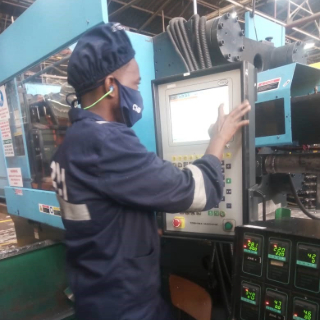
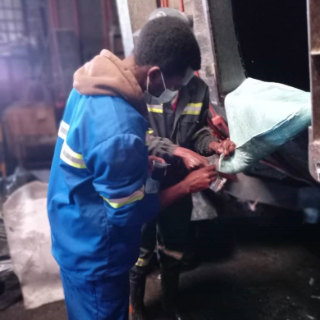
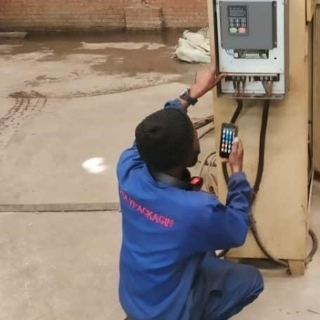
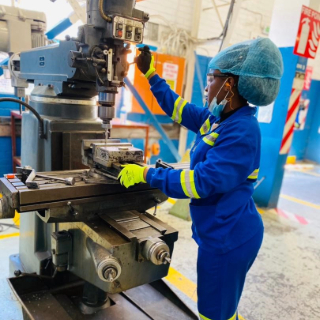

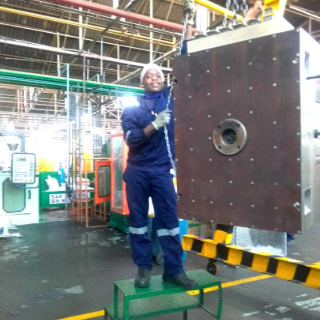
As a result of this interaction, the students learned that 3D printing can be used to address the shortage of prosthetics by providing the correct polymer for the prosthetic in question. Another practical example was how polymers like polyacrylonitrile, polycarbonate, and polyethylene could be used to address shortages of requirements like auto components without turning to imports but by simply using 3D printing technology. The students were thrilled to learn how much content was covered in the Department's program and were keen to learn more so that when they returned to their schools, they could share with their peers.



Our Programmes
Undergraduate
Entry requirements
Normal Entry: 3 A’ Level passes in Mathematics/Additional Mathematics/Mechanical Mathematics/ Pure Mathematics, Chemistry, and either Physics or Biology or Geography or Statistics or Computer Science or Textile Technology or Engineering Drawing/ Technical Graphics/ Mechanical Technology and Design/ Geometrical and Mechanical Drawing with 5 “O” Level passes including English Language and Mathematics.
Or
3 A’ Level passes in Mathematics/Additional Mathematics/Mechanical Mathematics/Pure Mathematics, and any two from Physics, Biology, Geography, Statistics, Computer Science, Textile Technology, Engineering Drawing/ Technical Graphics/ Mechanical Technology and Design/ Geometrical and Mechanical Drawing with 5 “O” Level passes including Chemistry/Physical Science, English Language and Mathematics.
Special Entry: Diploma in Polymer Science and/ Engineering or Fibre Science and Engineering or Chemistry or Rubber Technology or Plastics Technology equivalent and 2 years of relevant working experience.
Career Prospects
- Materials Engineers
- Polymer Engineers
- Process Engineers
- Plastics Engineers
- Rubber Engineers
- Textile Engineers
- Production Managers
- Plant Managers
- Factory Managers
- Quality Assurance Managers
- Technical Managers
- Industrial trainers
- Business consultants
- Technoprenuers
- Research Engineers
- Product Development Engineers
Bachelors Honours Degree in Fibre and Polymer Materials Engineering, Materials Engineering, Polymer Engineering, Textile Engineering, Chemical Engineering, Chemistry and any other relevant degree
OUR STAFF



